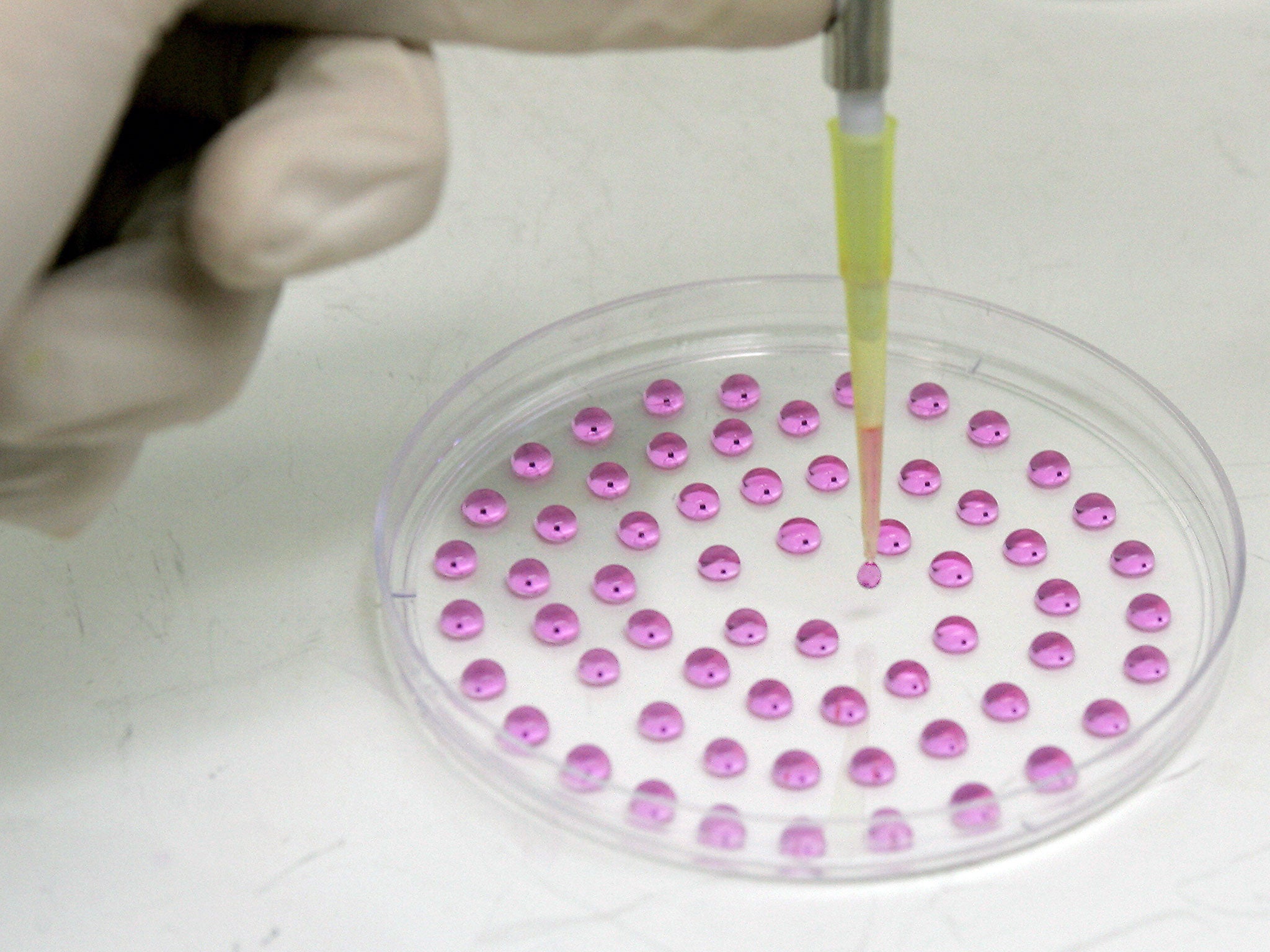Young men urged to join stem cell register to plug 'desperate' shortage
Stem cells can be used to treat blood and bone marrow diseases, including leukaemia

Your support helps us to tell the story
From reproductive rights to climate change to Big Tech, The Independent is on the ground when the story is developing. Whether it's investigating the financials of Elon Musk's pro-Trump PAC or producing our latest documentary, 'The A Word', which shines a light on the American women fighting for reproductive rights, we know how important it is to parse out the facts from the messaging.
At such a critical moment in US history, we need reporters on the ground. Your donation allows us to keep sending journalists to speak to both sides of the story.
The Independent is trusted by Americans across the entire political spectrum. And unlike many other quality news outlets, we choose not to lock Americans out of our reporting and analysis with paywalls. We believe quality journalism should be available to everyone, paid for by those who can afford it.
Your support makes all the difference.A blood cancer charity is calling on young men with “in demand” stem cells to sign up to become donors, to combat a “desperate” shortage.
Men between the ages of 16 to 30 have the most sought after stem cells, but they only make up 15 per cent of the register, according to the Anthony Nolan charity.
A fifth of the 345 British men in this age group surveyed by the charity said a lack of information put them off from registering.
A further 34 per cent said that they were afraid it may be painful, while 27 per cent said they did not like needles or hospitals.
The charity made the call after a student launched her own appeal on social media to try to find a stem cell donor.
Cardiff University student Vithiya Alphons, 24, was diagnosed with aggressive leukaemia in the final year of her medical degree.
She must now find a donor in order to receive a stem-cell transplant, made more difficult by her Sri Lankan heritage.
Ms Alphons is calling on people with a south Asian background to join Antony Nolan’s worldwide register.
Henny Braund, chief executive of Anthony Nolan, said: "We desperately need more young men to join the register.
"There are so many myths that surround stem cell donation. It isn't necessarily about being brave, as the process is so straightforward.
"All you have to do is fill out a simple form and provide a saliva sample. If you are a match for someone, 90 per cent of the time the process is similar to giving blood."
Stem cell transplants can be used to treat conditions affecting a patient's bone marrow or blood.
If a patient has a condition that affects their bone marrow or blood, then a stem cell transplant may be their best chance of survival.
The donor's stem cells are transfered into the patient through their blood stream. This enables the patient to grow and product healthy blood cells and platelets.
Those who are interested in becoming donors are required to send a sample of their saliva to Anthony Nolan for testing, by first sending off for a "spit kit". Those eligible will then be asked to donate stem cells when a patient with cancer or a blood disorder is in need.
The vast majority of donors will give stem-cells by undergoing peripheral blood stem cell collection. And one in 10 people will have their stem cells collected from their bone marrow while under general anaesthetic.
The charity stresses on its website that donation does not hurt, citing the responses of “countless donors”.
Additional reporting by PA
Join our commenting forum
Join thought-provoking conversations, follow other Independent readers and see their replies
Comments